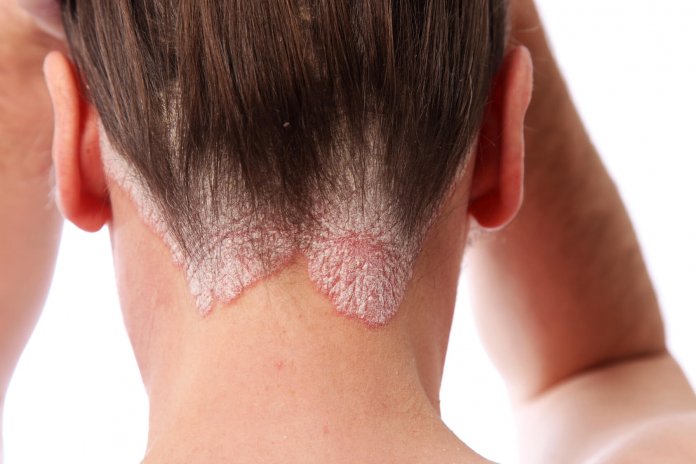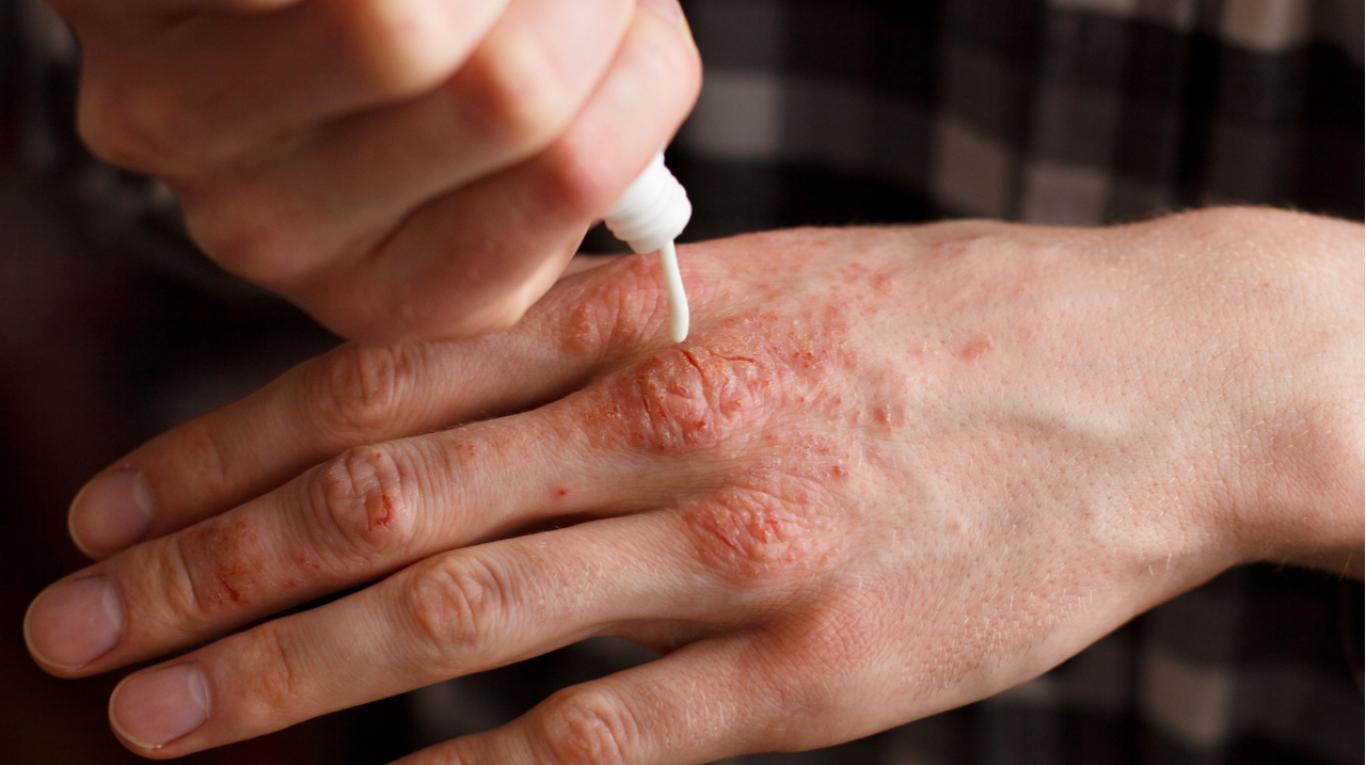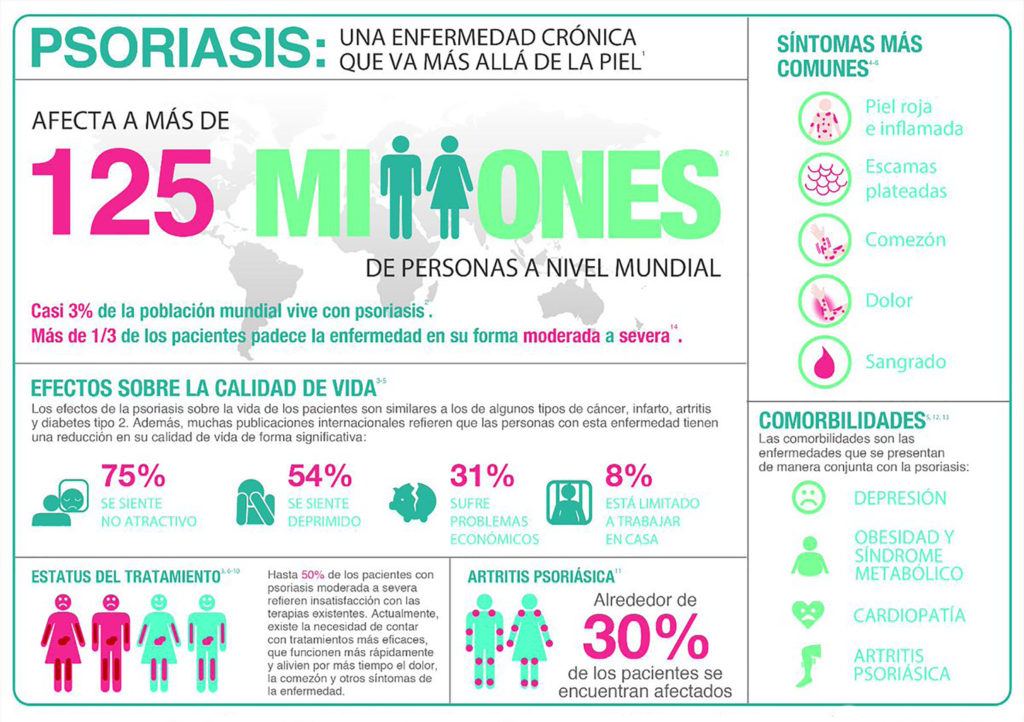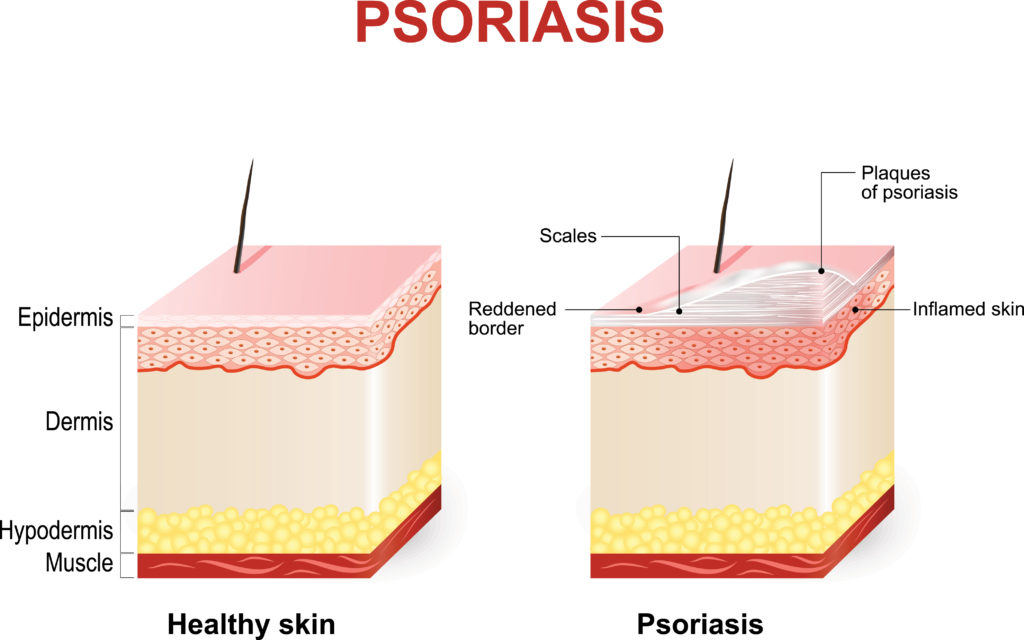
Psoriasis is a chronic skin condition caused by an overactive immune system

New York Prepared by Ed Hosseinipour, Specialty Pharmacist . Symptoms include flaking, inflammation, and thick, white, silvery, or red patches of skin. Psoriasis treatments include steroid creams, occlusion, light therapy and oral medications, such as biologics.
Symptoms Psoriasis causes patches of thick red skin and silvery scales. Patches are typically found on the elbows, knees, scalp, lower back, face, palms, and soles of feet, but can affect other places (fingernails, toenails, and mouth). The most common type of psoriasis is called plaque psoriasis.
Psoriasis is not contagious. This means you cannot get psoriasis from contact (e.g., touching skin patches) with someone who has it.
Psoriatic arthritis is an inflammatory type of arthritis that eventually occurs in 10% to 20% of people with psoriasis? It is different from more common types of arthritis (such as osteoarthritis or rheumatoid arthritis) and is thought to be related to the underlying problem of psoriasis.
Psoriasis and psoriatic arthritis are sometimes considered together as psoriatic disease.

Plaque Psoriasis The exact cause of plaque psoriasis is unknown. However, we do know that the immune system, environmental factors, and family history can all play a role. The immune system speeds up, which causes inflammation and a large number of skin cells to grow. Instead of falling off (shedding), the cells pile up on the surface of the skin, forming the psoriasis plaques.
Plaque psoriasis appears as raised, red patches covered with a silvery white buildup of dead skin cells, or scales. These patches or plaques most often appear on the scalp, knees elbows, and lower back.
Cause Psoriasis is an autoimmune disease, meaning that part of the body’s own immune system becomes overactive and attacks normal tissues in the body.

Diagnosis Psoriasis often has a typical appearance that a primary care doctor can recognize, but it can be confused with other skin diseases (like eczema), so a dermatologist (skin doctor) is often the best doctor to diagnose it.
The treatment of psoriasis usually depends on how much skin is affected, how bad the disease is (e.g., having many or painful skin patches), or the location (especially the face).
Treatments range from creams and ointments applied to the affected areas to ultraviolet light therapy to drugs (such as methotrexate). Many people who have psoriasis also have serious health conditions such as diabetes, heart disease, and depression.

Treatment when a person has psoriasis or psoriatic arthritis, it may be treated with drugs (such as methotrexate) or a combination of drugs and creams or ointments Coal tar, Moisturizers and Salicylic acid. However there are new drugs in the market New biologic therapies work well to treat psoriasis, and other new treatments are close to FDA approval.
Biologics They’re medicines made from substances found in living things. biologics work on psoriasis because they:Curb T cells (a form of white blood cell) . Block a substance called tumor necrosis factor-alpha (TNF-alpha), one of the main messenger chemicals in the immune system.
Stop a family of your immune system’s chemical messengers called interleukins Bind to proteins that cause inflammation. The patches and plaques of psoriasis come after an interaction between your skin cells and white blood cells.

Biologics interfere with TNF-alpha or T cells, or they target interleukins. This short-circuits that unhealthy link. This will ease your inflammation. You’ll have less growth of thick, scaly skin, too.
Biologic medicines approved by the FDA to treat moderate to severe psoriasis include: Adalimumab (Humira), Adalimumab-adbm (Cyltezo), a biosimilar to Humira, Brodalumab (Siliq), Certolizumab pegol Cimzia), Etanercept (Enbrel), Etanercept-szzs (Erelzi), a biosimilar like Enbrel, Guselkumab (Tremfya), Infliximab (Remicade), Ixekizumab (Taltz), Secukinumab (Cosentyx), Ustekinumab (Stelara),

Baron Specialty Pharmacy
has access to the most effective and modern medication which would fit the type of psoriatic condition and can help patients with Psoriasis understand and treat this disease by conducting an assessment during a free consultation. Please feel free to schedule a free consultation for this or any other disease state you may need help with. [ENG]
